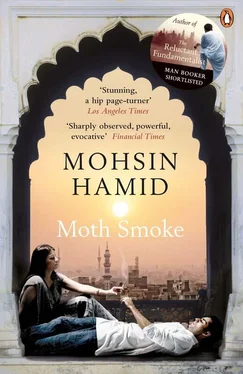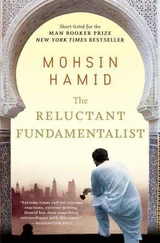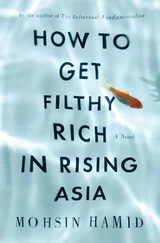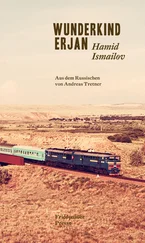We reach Main Market and pull into a space in front of Barkat’s paan shop. A dozen runners surround the car, knocking on the windows, each claiming he saw us first. I realize that it was stupid of us to come here: Main Market’s paan runners are Gulberg society’s elite reconnaissance team. I point to my guy, Salim, and wave the rest of them away.
Once Salim’s taken our order, the beggars move in. Most are genuinely crippled, or hooked on heroin, or insane, or too old to work, or dying from some debilitating disease, and I’d give them a rupee or two if it weren’t for the few strong ones, perfectly healthy, waiting to take their cut when night falls. But Mumtaz is more softhearted than I am, and when our runner comes back with the paan, I have to tell him to clear them away. Give money to a few and the whole market wants some. I tip Salim very well, with a look that means keep your mouth shut, because he knows who I am and who Ozi is, and a leak from him could spark some vicious gossip.
Which reminds me of something I’ve been meaning to ask Mumtaz since I spoke to Raider. ‘How was your party?’
She looks embarrassed. ‘I’m so sorry he didn’t invite you. But what a stupid reason to celebrate.’
‘Is he angry with me?’ What I’m really asking is: Has he found out we’ve been spending time with each other?
‘No, of course not. Why would he be?’
‘You tell me.’
‘He isn’t. I think he’s just trying to meet new people. He’s been away from Lahore for so long that he feels a little cut off.’
Mumtaz honks until the driver of the car that pulled in behind us, blocking our exit, comes running out of a shop.
Then we’re off to Model Town for our appointment. The palm reader lives in an old house with a crumbling boundary wall. I expect to be led inside, into a dark room with a crystal ball, perhaps, but Mumtaz takes me onto the lawn.
Allima Mooltani is sitting in the shade, on a cushion at the base of an enormous tree, smoking through a long ivory holder. An extension cord snakes through the grass, providing electricity to a pair of pedestal fans. In front of each fan rests a slab of ice covered with motia flowers. Allima’s long hair, mostly white but streaked with gray, moves like a tattered curtain in the wind.
‘This looks like an abandoned ad for menthol cigarettes,’ I tell Mumtaz, but she elbows me. We say our salaams and sit down.
I have to admit that it’s surprisingly pleasant out here, with the ice and fans and shade.
‘I’ve been waiting for you, Darashikoh,’ she says.
‘My God, you know my name!’ I exclaim.
‘Be serious, Daru,’ Mumtaz says.
‘Give me your hands,’ Allima tells me.
I do, and she strokes them with her forearm, front and back. I break out in goosebumps. Her fingernails are long and unpolished.
‘Shut your eyes.’
I do it. She gives me an exquisite hand massage, following the bones of my fingers into my palms, tracing the scabs on my knuckles lightly with her nails.
‘I have bad news for you,’ she says.
‘What?’
But before she can answer a woman calls out from the house. ‘Telephone, Amma. It’s Bilal.’
‘I’m so sorry,’ Allima says, jumping up. ‘My son. In Singapore.’
And with that she’s off at a trot. The door slams shut behind her like the distant retort of a howitzer, and I’m left looking at Mumtaz.
‘The suspense is too much,’ she says.
‘If she knows the future she should schedule these palm-reading sessions so they’re not interrupted by phone calls.’
Mumtaz shakes her head. ‘You have no faith.’
I light a smoke, cupping my hands against the best efforts of the pedestal fans.
We hear the unmistakable phirrr of a kite at low altitude and look up. Sure enough, there it is: a red-and-black patang, slim-waisted, wasplike, wing tips curved back like the horns of the devil. On the rooftop, directly above the door that swallowed Allima Mooltani, the patang’s young pilot acknowledges us with a jaunty salute.
Mumtaz waves to him.
And in the driveway, struggling to get aloft, we have the challenger: a battered machhar, its tail a white pom-pom, green-and-purple patches telling tales of battles past. And string in hand, jerking rapidly to capture altitude, is the machhar’s commander, a barefoot servant boy a little taller than the bonnet of the car beside him.
We’re in for a kite fight.
The patang, temporarily denied any more string, catches the wind and soars straight up.
The machhar flips about at tree level, displaying a tendency to circle in a counterclockwise direction. But its minuscule commander manages to use this imbalance to his advantage, timing his tugs to the moment the machhar’s nose points in the direction he wants, finding maneuverability in capriciousness.
And slowly, the machhar climbs.
The patang paces back and forth far above.
Then suddenly, paper screaming in the wind, the patang dives at the machhar. The machhar makes an agile leap to one side, narrowly avoiding having its string hooked, and the patang spins and climbs again.
Mumtaz says a quiet ‘Olé.’
‘He’s in trouble,’ I say. ‘The patang’s not going to let him get high enough for it to be a fair contest.’
Having lost some altitude, the machhar begins to jerk upward again, crisscrossing the sky warily.
Again the patang dives, and again the machhar dances off, too unsteady at this height to have any real chance of winning, but this time their strings entwine and the kite fight is joined.
The patang takes string like a sprinter, streaming away.
The machhar wobbles unsteadily.
Powdered glass on each kite’s string cuts into the other’s, but the patang’s string is moving much more quickly, giving it more of a bite and less time to fray.
I follow the lines with my eyes, taut and straight from the roof, limp and curved from the driveway. The patang’s posture is solid, strengthening. The machhar twitches weakly.
And with a final tug the machhar’s string is cut, leaving it to flop onto its back and drift gracefully, more steady in death than it was in life, until it plunges onto a lawn several houses away.
A high-pitched victory cry from the rooftop: ‘Ai-bo!’
And in the driveway the servant boy sucks his finger, cut by the glass, as he gathers what string he can save with his other hand. There isn’t much. He looks up at the patang, now a tiny dot in the distance, before trudging back to the servant quarters, defeated, kiteless.
Only then does it occur to Mumtaz and me that Allima still hasn’t returned.
‘What should we do?’ I ask her.
‘Let’s ring the bell.’
A woman answers the door, barefoot. She has beautiful feet. ‘I’m sorry, but Amma is meditating.’
‘Meditating?’ Mumtaz gives me a look. ‘But she was just reading his palm.’
The woman raises the big toe of her left foot. ‘She said she is done. You know all you need to know.’
‘But she was just beginning.’
‘I’m sorry.’
Mumtaz is ready to continue protesting, but I take her elbow with a grin and lead her back to the car. ‘Forget it,’ I say.
She shakes her head. ‘How strange.’
‘Well, you know how these mystics can be.’
She looks at me. ‘You’re happy about this, aren’t you? You thought she was a fake from the start.’
‘Amused, perhaps. And a little happy we can leave. I need a joint pretty badly.’
‘Where can we go?’
I think. I don’t want to go back to my place. It’s almost evening, not too hot now, and I’d like to be out in the open. ‘How about Jallo Park?’ I suggest.
‘I’ve never been there.’
‘They have a zoo.’
‘Really?’
Читать дальше












